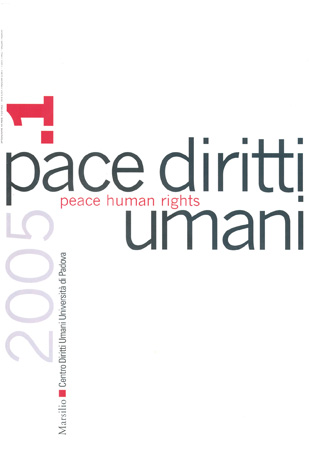Collections

Rapporto Cardoso: la sfida della partnership nelle relazioni Nazioni Unite/società sivile
- Contained in
- Pace diritti umani - Peace Human Rights, 1/2005
- Pubblication type
- Articolo / Saggio
- Pages
- 29-54
- Language
- IT
Cardoso Report: The Challenge of Partnership in the Relations between the United Nations and Civil Society
Marco Mascia
The author considers the NGOs consultative status and the United Nations world conferences as «embrios» of international-cosmopolitan democracy. The practice of consultative status and participation in the world conferences provide NGOs important «interstices», that is opportunities to develop processes of structural change of the (interstate) system of international relations. International democratisation is the independent variable of the process of construction of a new world order more just, peaceful, equitable and solaidaristic. The second part of the essay analyses the «Report of the High-level Panel of eminent persons on the relations of the Uniterd Nations and civil society», entitled We the Peoples: Civil Society, the United Nations and Global Governance (June 2004), the Report of the UN Secretary General comprising comments and proposals relating the the High-Level Panel Report, and the most significant positions of NGOs and networks of global civil society. The author’s view is that the evolution of UN-civil society relationships cannot limit to extending and rationalising the current practice of consultations, but should bring to the transformation of the «consultative status» into a «co-decision making status» at least relating to operational sectors such as, for instance, the promotion and protection of human rights, development cooperation, environment protection, in which the central role of NGOs is universally recognised. This qualitative leap for democracy is seen as indispensable also to relaunch the United Nations role in the system of global governance. Referring to the idea of partnership among different constituencies – civil society, private sector, states –, that is largely amphasised in the Panel’s Report, the author stresses the necessity of establishing different accreditation systems for NGOs and the private sector.

